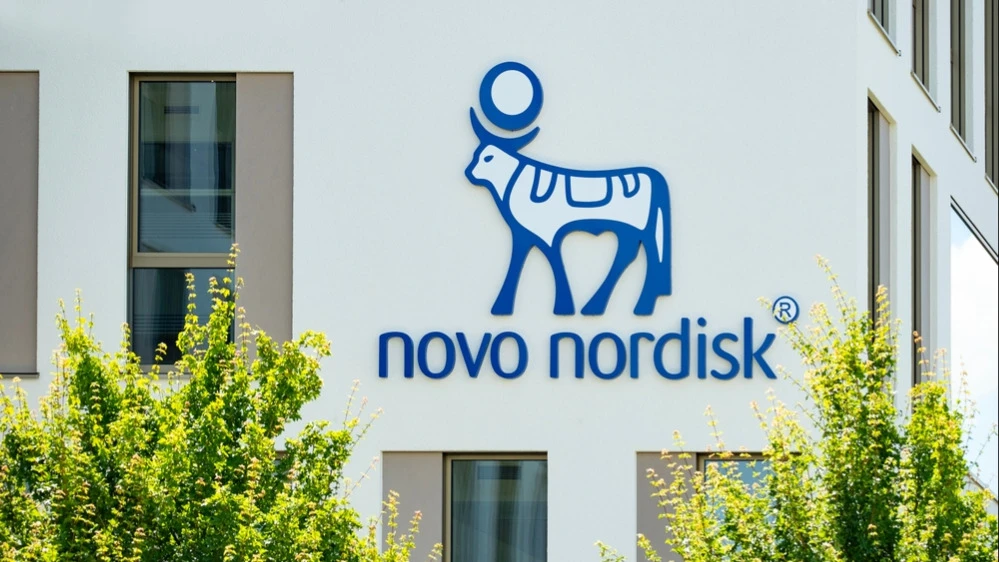The oldest bank in Germany has bet on Novo Nordisk. How is it better than market favorite Eli Lilly?
While raising the recommendation to "buy", investment bank Berenberg simultaneously lowered the target on Novo securities by 25%

Amid a flood of news from the world's leading makers of weight loss drugs - Novo Nordisk and Eli Lilly - analysts at Germany's oldest private bank Berenberg went against the Wall Street consensus and said the Danish company now looks like a more attractive option for investors, according to Barron's. Berenberg believes in the ability of Novo's new management to turn things around and regain leadership in the obesity market, which Novo itself created.
Details
Berenberg analysts led by Kerry Holford raised their recommendation on Novo Nordisk securities from "hold" to "buy", noting that the company "is no longer the elephant in the room", quotes a note from analysts at Barron's Bank. In English, the idiom refers to an obvious problem that no one is willing to discuss out loud. The problem was that Novo Nordisk, having established a market for weight loss drugs, began losing out to competitors. After several forecast cuts this year, market expectations for the Danish pharma company have fallen dramatically. And that, according to Holford, opens up space for a more constructive discussion about Novo's growth prospects, drivers and valuation.
While raising the recommendation to "buy" Berenberg simultaneously lowered the target price on Novo's American depositary receipts - from $90 to $67. But that's still 15% above the closing price on Sept. 17. The lowered target reflects how much investor expectations have fallen, Barron's explains. Over the past 12 months, Novo's securities have fallen about 55%, while shares of its main competitor, US-based Eli Lilly, have lost only 16% over the same period.
In contrast, Berenberg downgraded Eli Lilly from "buy" to "hold". Although over the past five years Lilly's stock has delivered an outstanding return of 413% versus the sector average of 71%, Berenberg believes that current expectations are already too high. The target price on Lilly shares was lowered from $970 to $830. This is 9.2% higher than the current value of the securities.
At trading on Wednesday, Lilly shares fell 0.6% to $760.1. Novo securities in the U.S. rose by 1.8% to $58.2.
Why Novo has more prospects for growth
The Berenberg team believes Novo's new CEO Maziar Mike Dustdar has a chance to pleasantly surprise the market despite the ongoing challenges. One potential catalyst could be the launch of a tablet form of Wegovy, Novo's blockbuster in the weight loss drug market. An additional impetus could come from FDA approval to expand the indications for the active ingredient semaglutide (the active ingredient in Wegovy and Ozempic) to include conditions such as non-alcoholic fatty liver disease, heart failure and Alzheimer's disease.
"Novo has fresh ammunition to launch a counterattack against Lilly's Zepbound," Berenberg said in a note.
Analysts note that the potential of the company's product portfolio is underestimated. For example, the new-generation weight loss drug CagriSema, which is at a late stage of trials, may become a growth point for Novo in the future. It was the disappointing data from the first trials of CagriSema that caused the pharma company's quotes to collapse in 2024.
Eli Lilly is now considered the market leader in incretins - hormones such as GLP-1 and GIP that regulate sugar levels and reduce appetite, writes Barron's. Zepbound is now more commonly prescribed by doctors than Wegovy. But as the Barenberg analysts noted, the Novo offensive has already begun, and growth in Lilly's Zepbound's share of the U.S. market has stalled. The Wegovy rollout is being helped by an agreement with insurance company CVS Health: patients who use its services now get Wegovy instead of Zepbound - and analysts say the transition has been virtually unopposed.
"Now that Novo has real-world data from practice and a broader indication for Wegovy, Lilly may have to compete more aggressively for the lead," Berenberg said in the memo.
What's Lilly's answer
Lilly has its trump card - a pill based on the small molecule compound GLP-1 called orforglipron (orforglipron), which is expected to launch in 2026, probably shortly after Wegovy comes out in pill form. However, early data on orforglipron disappointed investors, with an average weight loss of 12.4% over 72 weeks versus 15% in the Wegovy studies.
On Wednesday morning, Lilly presented new results from a study of orforglipron in patients with type 2 diabetes. The drug showed better results in weight loss and glucose levels compared to Novo's tablet form of semaglutide, Rybelsus.
Not all analysts believe Eli Lilly's dominance in the U.S. is threatened by anything. "These data only reinforce our confidence that Eli Lilly maintains its leadership in the GLP-1 market," Gabelli Funds fund manager Daniel Barasa told Barron's. He notes that orforglipron has a number of advantages over oral semaglutide, including the ability to be taken at any time of day, regardless of food.
What analysts recommend
Novo Nordisk securities were rated by 32 analysts. Of these, 18 recommend to buy the securities, 13 advise to hold, one - to sell. Wall Street consensus target price is $70.8. This is 21.6% above the current value of the securities.
According to MarketWatch, out of 29 analysts tracking the stock, 22 of them recommend to buy, seven - to hold. There is no advice to sell. The Wall Street consensus price target is $905.2, up 19% from the closing price on Sept. 17.
This article was AI-translated and verified by a human editor
